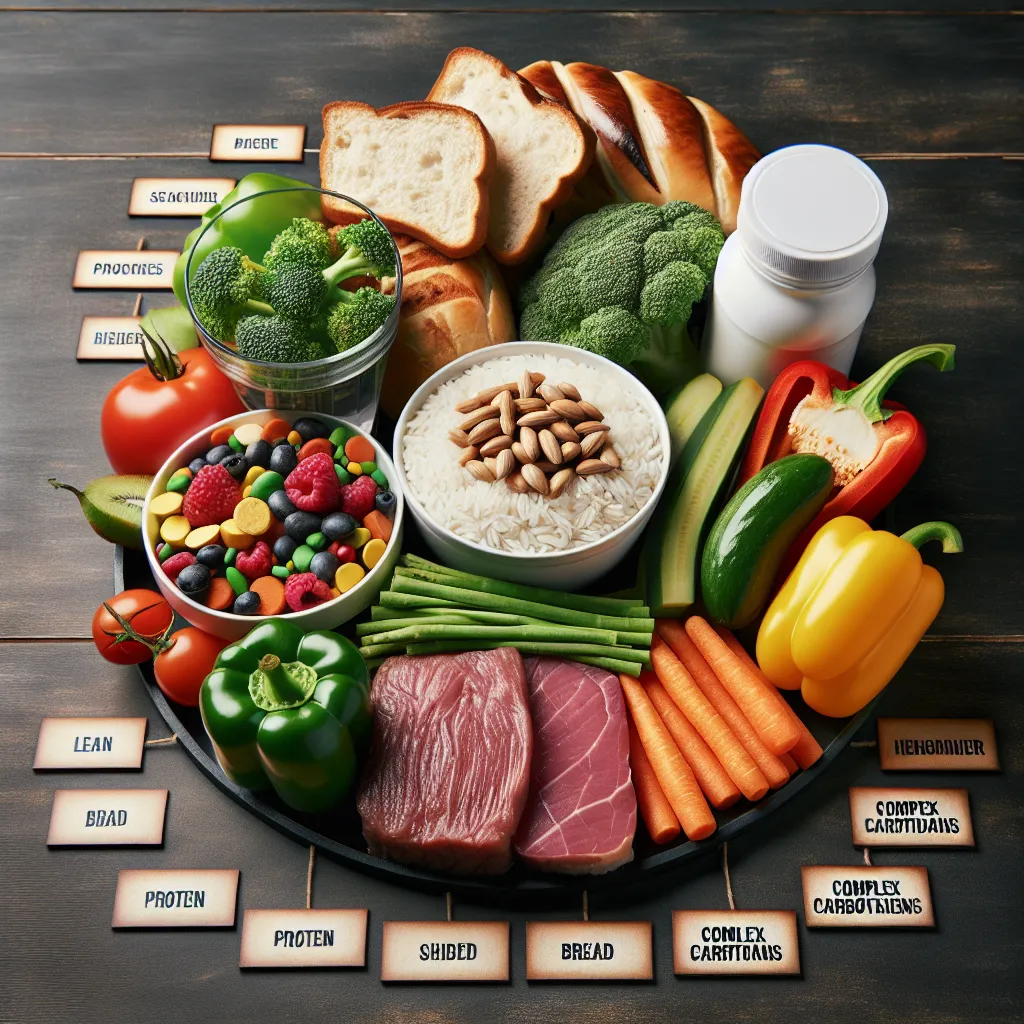The Importance of Post-Workout Nutrition for Muscle Recovery
Post-workout nutrition plays a crucial role in the process of muscle recovery and overall athletic performance. After intense physical activity, the body is in a prime state to absorb nutrients and initiate the repair and growth of muscle tissue. By optimizing post-workout nutrition, athletes can enhance their recovery process and improve their ability to adapt to training stress.
Consuming the right combination of macronutrients, specifically protein and carbohydrates, after exercise is essential for maximizing muscle recovery. Protein is composed of amino acids, which are the building blocks of muscle tissue. Consuming protein after a workout helps to promote muscle protein synthesis, aiding in the repair of damaged muscle fibers and the growth of new muscle tissue.
Carbohydrates are also vital post-workout, as they help replenish glycogen stores, which serve as a primary energy source for muscles during exercise. Additionally, consuming carbohydrates post-workout stimulates the release of insulin, which assists in the uptake of nutrients into muscle cells, further supporting the recovery process.
In addition to protein and carbohydrates, adequate hydration is crucial for post-workout recovery. Replenishing fluid and electrolyte losses sustained during exercise supports optimal muscle function and aids in the transportation of nutrients throughout the body.
Overall, optimizing post-workout nutrition is paramount for facilitating muscle recovery and preparing the body for future bouts of exercise. By prioritizing the consumption of protein, carbohydrates, and fluids after a workout, athletes can accelerate the repair of muscle tissue, minimize the risk of injury, and ultimately enhance their physical performance.
Strategies for Optimizing Post-Workout Nutrition
Optimizing post-workout nutrition is crucial for maximizing recovery and performance gains. Implementing effective strategies for optimizing post-workout nutrition can significantly enhance the body’s ability to repair and rebuild muscle tissue, replenish glycogen stores, and reduce post-exercise fatigue. One key strategy is to consume a combination of carbohydrates and protein within the post-workout window, typically within 30 minutes to an hour after exercise. This timing is critical as the muscles are more receptive to nutrient uptake, allowing for improved glycogen resynthesis and muscle protein synthesis.
Another important aspect is to prioritize high-quality, easily digestible sources of carbohydrates, such as fruits, whole grains, or sports drinks, to replenish depleted glycogen stores. Pairing carbohydrates with a sufficient amount of high-quality protein, like whey protein, can further enhance muscle protein synthesis and promote muscle recovery. Additionally, including adequate fluids and electrolytes in post-workout nutrition is essential for rehydration and maintaining optimal muscle function.
Furthermore, individualizing post-workout nutrition based on the type, intensity, and duration of the workout, as well as personal goals and dietary preferences, is crucial for maximizing the benefits of refueling and recovery. Considering factors such as body composition, training phase, and specific nutritional needs can help tailor post-workout meals or snacks to meet individual requirements.
In conclusion, implementing effective post-workout nutrition strategies, such as timing nutrient intake, prioritizing carbohydrate and protein sources, and individualizing nutrition plans, plays a pivotal role in optimizing recovery and performance. By understanding and applying these strategies, individuals can enhance their post-exercise nutritional regimen to better support their fitness goals and overall well-being.
Maximizing Recovery: Key Elements of Post-Workout Nutrition
Maximizing recovery after a workout is crucial for athletes and fitness enthusiasts looking to optimize their performance and progress. Post-workout nutrition plays a key role in facilitating the recovery process, helping the body replenish energy stores, repair damaged muscle tissue, and reduce exercise-induced inflammation. To achieve maximum recovery, it is essential to focus on key elements of post-workout nutrition.
One vital element is consuming an adequate amount of high-quality protein to support muscle repair and growth. Research suggests that consuming 20-40 grams of protein within the first few hours after exercise can significantly enhance muscle protein synthesis, promoting faster recovery and adaptation to training. Whey protein, with its rapid digestion and high leucine content, has been shown to be particularly effective in stimulating muscle protein synthesis.
In addition to protein, carbohydrates play a crucial role in post-workout nutrition by replenishing glycogen stores, the body’s primary source of energy during exercise. Consuming a combination of fast-digesting carbohydrates, such as dextrose or maltodextrin, with a source of protein can enhance glycogen re-synthesis and promote a more robust insulin response, facilitating nutrient uptake by muscle cells.
Furthermore, adequate hydration is essential for optimizing recovery, as dehydration can impair the body’s ability to repair muscle tissue and adapt to the physical stress of exercise. Replenishing fluids lost through sweat is crucial for maintaining optimal cellular function and promoting efficient nutrient transport to muscles.
Additionally, incorporating anti-inflammatory nutrients such as omega-3 fatty acids, found in fatty fish or supplemental form, along with antioxidant-rich foods like berries and brightly colored vegetables, can help mitigate exercise-induced inflammation and oxidative stress, promoting faster recovery and reducing the risk of overtraining.
In conclusion, optimizing post-workout nutrition for recovery involves addressing key elements such as adequate protein intake, carbohydrate replenishment, hydration, and incorporating anti-inflammatory nutrients. By paying attention to these aspects of post-workout nutrition, individuals can maximize their recovery, support muscle growth, and improve their overall performance.

